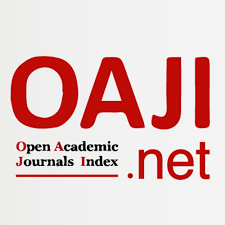Elvira Aldao de Díaz, an Argentine Reporter of the First World War
Abstract
This article examines the observations of the Argentine writer, Elvira Aldao de Díaz (1858-1950), on World War I during her stay in Paris. Using a perspective grounded in the cultural history of war and through a discursive analysis of her two texts on the conflict, Horas de guerra y horas de paz (1923) and París 1914-1919, impresiones (1926), my work analyzes Aldao’s vision of European society during the war and its effects on Argentina. With a style that combines personal impressions and interviews, the author assumes the position of an observer oscillating between tourist curiosity and journalistic investigation, approaching the profile of a war reporter. Her writings reflect the political and intellectual divisions in Argentina between the pro-Allies (aliadófilos) and pro-Germans (germanófilos), and they explore the cultural and political dimensions of the war with a particular focus on women’s lives. Aldao highlights the prominent role of women in the war, paying particular attention to the “war godmothers” (madrinas de guerra) and the donneuses d’eau. Her observations provide valuable insights into the social dynamics and gender divisions of the turn-of-the-century period. Horas de guerra y horas de paz and París 1914-1919, impresiones represent a significant contribution to war literature, especially from the perspective of foreign women documenting conflicts from the social and national margins.Downloads
References
Aldao de Díaz, E. (1923). Horas de guerra y horas de paz. Balder Moen Editor.
Aldao de Díaz, E. (1926). París 1914-1919, impresiones. Agencia General de Librería y Publicaciones.
Alexiévich, Svletana. (2015). La guerra no tiene rostro de mujer. Debate.
Andruetto, M. T. (2011). La memoria pedagógica. Prólogo a Recuerdos de antaño, de Elvira Aldao. Editorial Buena Vista.
Bailey, P. (1990). Parasexuality and Glamour: the Victorian Barmaid as Cultural Prototype. Gender & History, 2(2), 148-172. https://doi.org/ddfqkh
Barrancos, D. (2007). Mujeres en la Sociedad Argentina. Una historia de cinco siglos. Editorial Sudamericana.
Burke, P. (2004). What is Cultural History? Polity Press.
Caldo, P. (2019). Los recuerdos de Elvira Aldao de Díaz… O una mirada femenina acerca de los espacios y de las prácticas de sociabilidad durante los veraneos marplatenses, 1887-1923. Revista Escuela de Historia, 9(2), 1-24.
Cardinal, A., Goldman, D. y Hattaway, J. (1999). Women’s Writing on the First World War. Oxford University Press.
Chartier, R. (1988). Cultural History. Between Practices and Representations. Cornell University Press.
Colombi, B. (2004). Viaje Intelectual. Migraciones y desplazamientos en América Latina (1880-1915). Beatriz Viterbo.
Compagnon, O. (2014). América Latina y la Gran Guerra: el adiós a Europa (Argentina y Brasil, 1914-1939). Crítica.
de Diego, J. L. (2011). Editores alemanes en Argentina en G. Chicote y B. Göbel (eds.), Ideas viajeras y sus objetos: El intercambio científico entre Alemania y América austral. Iberoamericana-Vervuert.
Demoor, M., Van Puymbroeck, B., y Van Remoortel, M. (2017). La Revue des marraines (1916–17): a journal for war godmothers and their godchildren. Journal of European Periodical Studies, 2(1), 1-19.
Elshtain, J. (1991). Women and War. University of Chicago Press.
Etchebéhère, M. (2016). Mi guerra de España. Eudeba.
Garro, E. (1992). Memorias de España, 1937. Siglo XXI.
Goldman, E. (1914). The Emma Goldman Papers. Internet Archive. https://archive.org/details/goldmanwritings9101emma_0/page/n1/mode/1up
Grayzel, S. R. (1997). Mothers, Marraines, and Prostitutes: Morale and Morality in First World War France. The International History Review, 19(1), 66-82.
Guy, D. (1988). White Slavery, Public Health and the Socialist Position on Legalized Prostitution in Argentina, 1913-1936. Latin American Research Review, 23(3), 60-80.
Haytock, J. A. (2003). At Home at War: Domesticity and World War I in American Literature. Ohio State University Press.
Higonnet, M. R. (1997). Behind the Lines: Gender and the Two War Worlds. Yale University Press.
Jarrassé, D. (2002). La importancia del termalismo en el nacimiento y desarrollo del turismo en Europa en el siglo XIX. Historia Contemporánea, (25), 33-49.
Jennings, E. (2014). Donneuses d’eau. Une profession au cœur du thermalisme français (1840-1914). Sociétés & Représentations, 38(2), 143-170.
Lavrín, A. (1995). Women, Feminism, and Social Change in Argentina, Chile, and Uruguay, 1890-1940. University of Nebraska Press.
Miseres, V. (2017). Mujeres en tránsito. Viaje, identidad y escritura en Sudamérica (1830-1910). North Carolina Studies in the Romance Languages and Literatures.
Miseres, V. (2022). Frente a la guerra: patriotismo y feminismo internacional de entresiglos en G. Batticuore y M. Vicens (eds.), Historia feminista de la literatura argentina (pp. 157-186). Eduvim.
Moreno de Cáceres, A. (1974). Recuerdos de la Campaña de la Breña (Memorias). Editorial Milla Batres.
Rinke, S. (2017). Latin America and the First World War. Cambridge University Press.
Sánchez, E. G. (2017). Bohemia anarquista, modernismo y periodismo: las crónicas de Juan José Soiza Reilly durante la Primera Guerra Mundial. Revista Izquierdas, (35), 98-123.
Seul, S. (2021). Women War Reporters of the First World War. https://stephanieseul.com/women-war-reporters-of-the-first-world-war/
Siskind, M. (2014). Cosmopolitan Desires. Global Modernity and World Literature in Latin America. Northwestern University Press.
Siskind, M. (2015). The Spectacle of War at a Distance: Latin American Modernistas in World War I. MLN. Modern Language Notes, 130(2), 234-255.
Tato, M. I. (2017). La trinchera austral: la sociedad argentina ante La Primera Guerra Mundial. Prohistoria Ediciones.
Thébaud, F. (1993). La Primera Guerra Mundial: ¿la era de la mujer o el triunfo de la diferencia sexual? en G. Duby y M. Perrot, Historia de las mujeres en Occidente (pp. 45-106). Santillana.
Vicens, M. (2021). Escritoras de entresiglos, un mapa transatlántico: autoría y redes literarias en la prensa argentina (1870-1910). Universidad Nacional de Quilmes.
Copyright (c) 2025 Vanesa Miseres

This work is licensed under a Creative Commons Attribution-NonCommercial 4.0 International License.

Historia & Guerra uses an international license Attribution-NonCommercial 4.0 International (CC BY-NC 4.0).
You are free to:
- Share — copy and redistribute the material in any medium or format.
- Adapt — remix, transform, and build upon the material.
- The licensor cannot revoke these freedoms as long as you follow the license terms..
Under the following terms:
Attribution — You must give appropriate credit, provide a link to the license, and indicate if changes were made. You may do so in any reasonable manner, but not in any way that suggests the licensor endorses you or your use.
NonCommercial — You may not use the material for commercial purposes.
No additional restrictions — You may not apply legal terms or technological measures that legally restrict others from doing anything the license permits.
Notices:
You do not have to comply with the license for elements of the material in the public domain or where your use is permitted by an applicable exception or limitation.
No warranties are given. The license may not give you all of the permissions necessary for your intended use. For example, other rights such as publicity, privacy, or moral rights may limit how you use the material.
The author retains all rights to his work without restriction and grants Historia & Guerra the right to be the first publication of the work. Likewise, the author may establish additional agreements for the non-exclusive distribution of the version of the work published in the Journal (for example, placing it in an institutional repository or publishing it in a book), with the acknowledgment of having been first published in this journal. Use of the work for commercial purposes is not permitted.














.jpg)















